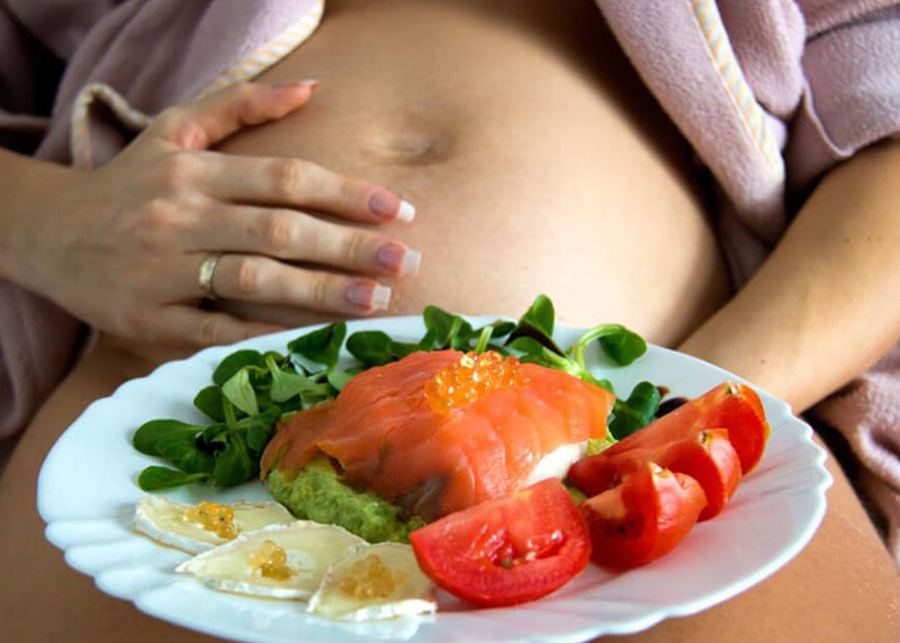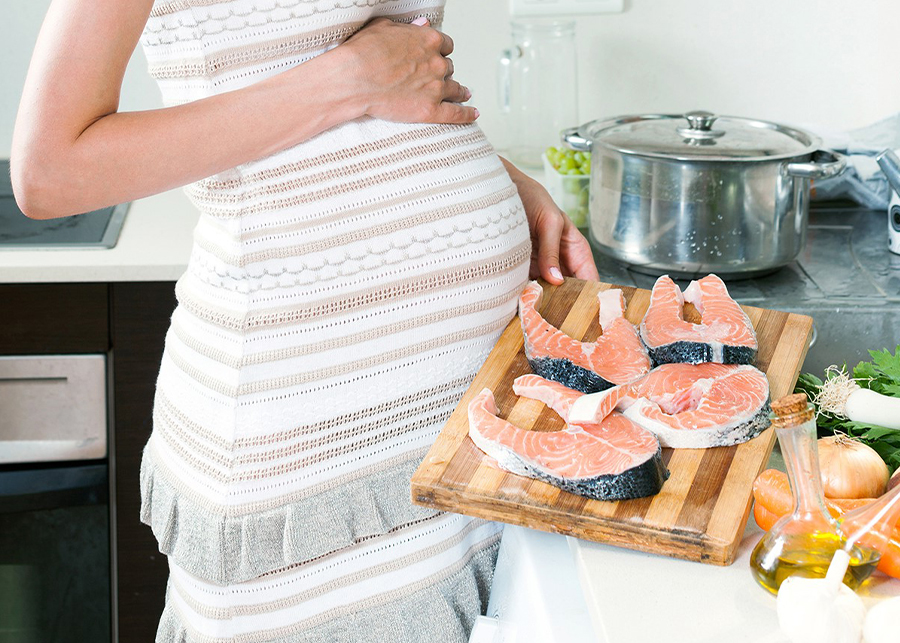Are pregnant women allowed to eat fish? The short answer is yes. In fact, most doctors will recommend that a pregnant woman eat at least two servings of fish a week. Fish, including shellfish, can be an excellent source of protein, vitamins and minerals.
You may wonder if you can safely eat fish while pregnant. The answer is yes, but you have to be careful which type to choose. Most pregnant women should avoid the high mercury content of most fish. Fortunately, there are some low-mercury choices that can help you get your fill of omega-3 fatty acids while pregnant.

Pollock
Pollock is an excellent choice for pregnant women because it’s low in mercury and contains a high amount of protein. Atlantic and Alaskan pollock are both considered safe to eat during pregnancy. These shellfish are packed with vitamins and minerals that will help the baby develop and grow well. They are also high in omega-3 fatty acids, which help speed the brain development of the child.
Pollock is a good source of omega-3 fatty acids
Pollock is an excellent source of omega-3 fatty acids for pregnant mothers-to -be. In a single serving, it contains more than 20 percent of the recommended daily intake of omega -3 fatty acids. These acids protect the heart and circulatory system, and may also reduce inflammation and promote weight loss. Pollock is also a good source of antioxidants, which protect the skin and eyes, and help reduce inflammation. Pollock is best prepared pan-fried or steamed, and should be purchased from reputable companies.
Pollock is high in iodine
Pollock is a low-mercury fish, so it’s safe for pregnant women to eat it up to two or three times a week. Most women who are pregnant need to eat around 8 – 12 ounces of lower-mercury fish per week, and pollock is a good choice, because it’s wild-caught.
Pollock is low in mercury
Pollock is a popular fish that is low in mercury. It can be eaten by pregnant women and is a good source of protein and B vitamins, as well as magnesium and potassium. It is also a good source of Selenium. Because pollock is low in mercury, it is often recommended to pregnant women. When buying pollock, look for wild varieties, since these contain fewer fats and higher amounts of omega – 3 fatty acids. During pregnancy, you should always thoroughly cook pollock. This will kill any bacteria and parasites that might be in the fish.
Tilefish is high in mercury
Tilefish is high in mercury and can be dangerous for pregnant women. Even though it is not a carcinogen, it can damage the developing fetus. Pregnant women should eat a variety of seafood, including low-mercury fish such as salmon, catfish, and tilapia.
Tilefish is high in iodine
Tilefish is high in iodide, an essential nutrient for pregnant women. Iodine is needed by the developing baby for healthy thyroid function and development, as well as for speech, brain development, and overall growth. However, consuming too much iodine can lead to neurological damage and hypothyroidism. However, pregnant women should consume at least two hundred and forty micrograms of iodine daily. Fish such as tilefish are high in iodine and are a healthy source of protein and omega-3 fatty acids.
Oysters are high in iodine
Oysters are rich in iodine, a nutrient that is essential for the development of the fetus. This mineral is also beneficial to pregnant women, as it can help to reduce the risk of preeclampsia and preterm birth. In addition to iodine, oysters also contain selenium, zinc, and iron, which are essential for the development of the fetal brain and endocrine system. Additionally, they contain essential electrolytes like sodium and potassium, which are necessary for pregnancy.

Oysters are high in vitamin D
While pregnant women can consume oysters, it is important to note that they should only eat fully -cooked oysters and should avoid raw, smoked, or partially-cooked oysters. The US Food and Drug Administration recommends that pregnant women cook oysters to 145 degrees Fahrenheit to kill bacteria, viruses, and parasites. Nonetheless, if an oyster craving strikes, pregnant women should simply bake or boil them according to the recommended temperature. Partial cooking techniques are not recommended because of their lack of nutritional value and can cause complications.
Oysters are high in calcium
While the high calcium content may sound appealing, there are also other health benefits of oyster consumption for pregnant women. For instance, oysters contain a special antioxidant called 3,5-Dihydroxy-4-methoxybenzyl alcohol, or DHMBA. This mineral can help prevent cellular death that is the result of oxidative stress. This antioxidant also helps protect the liver.
Can Pregnant Women Eat Fish While Pregnant? Result
The bottom line is that you can indulge in the occasional serving of fish while pregnant without worrying. Just make sure you have a reliable source of information on hand to help you identify which types are best and keep an eye out during your pregnancy to ensure you’re regularly getting enough omega-3 fatty acids in your diet.


